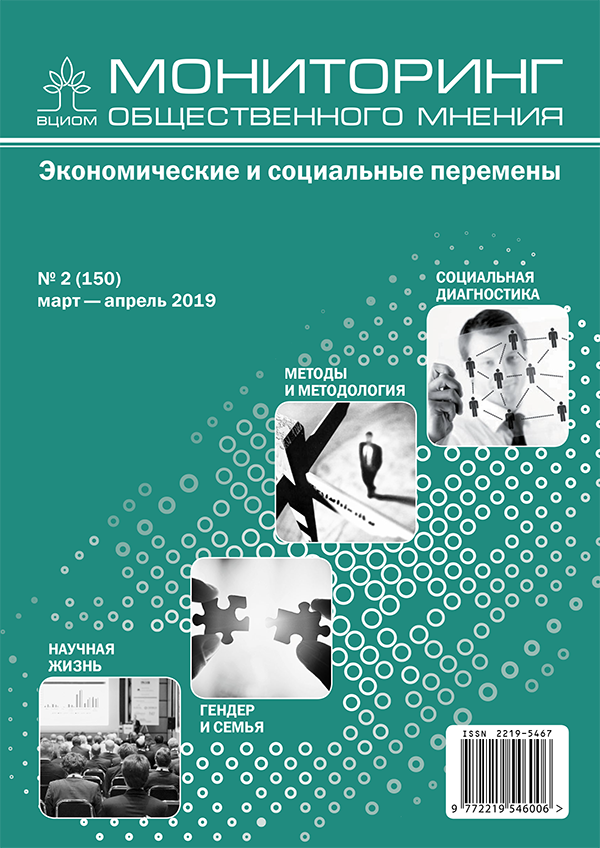In search of multivariate associations: comparison of CHAID, log-linear analysis, and multiple correspondence analysis
DOI:
https://doi.org/10.14515/monitoring.2019.2.02Keywords:
categorical variables, electoral behavior, interaction effects, multivariate associations, predictive modelsAbstract
The paper addressed to the problem of the elaborated concepts shortage which deals with the analysis of multivariate associations among categorical variables. Meanwhile, such associations are rather common in sociological research what is argued by a corpus of methodological works. In them, it is grounded the necessity of the analysis of multivariate associations among categorical variables. Nevertheless, sociological experience in such an analysis is pretty poor as well as its theoretical generalization. In this study, we have tried to fill this gap by comparing the three methods: CHAID, log-linear analysis, and multiple correspondence analysis. The methods were compared at both theoretical and empirical levels. The empirical objective was to create a portrait of various Russian political parties’ electorate using the data of the European social research conducted in 2016. By bringing the results of the application of methods to the form of categories combinations and by formulating numerical criteria for the comparison, the study allowed to identify the most effective method in two types of analytical tasks: description and forecasting. According to the results of the study, multiple correspondence analysis was the most effective in descriptive tasks, and log-linear analysis was the most effective in forecasting. The latter conclusion contradicts the currently predominating opinion regarding the CHAID’s efficiency in cases when a target variable is presented in data and, therefore, has high practical significance for further development of the idea of building high-precision predictive models in sociological research.
Acknowledgment. The publication has been prepared during the study "Substantiation of the benefits of searching for interaction effects and their consideration in sociological regression models" (№18-05-0031) under "HSE Academic Fund Programme" in 2018 and under the state support programme of leading universities of the Russian Federation "5-100".






